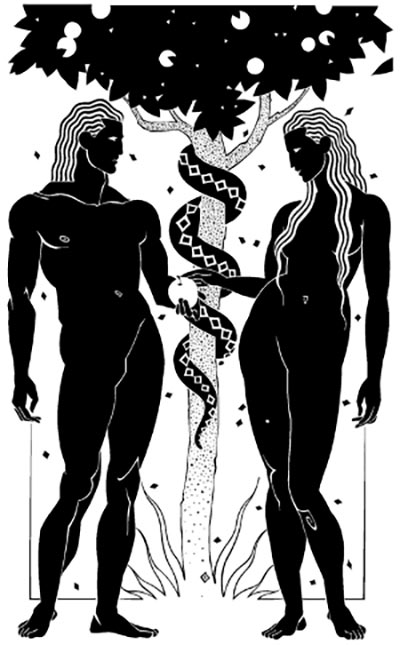5 June 2012
Taking a peek into 'Paradise Lost' with instructor Michael Caldwell
By Michael Caldwell
Sometimes I try to imagine what my students are thinking when they see John Milton's epic poem assigned for a class. "Why read "Paradise Lost?" It's a deliberately difficult retelling of the fall of Adam and Eve in the Bible isn't it? Can't I just get the Cliffsnotes/Wikipedia/Sparknotes short version by reading Genesis?"

Here's what I wish I could tell them.
All poets have their thematic strengths — things they do well. Milton has at least two that (arguably) he does better than anyone else in English: he is the great poet of married love and he is the great poet of temptation. Given these strengths, taking on the story of Adam and Eve and Satan in the Garden of Eden is kind of a natural for Milton.
He nearly didn't write the poem — so many things got in the way — an early career as a propagandist, the English Revolution, going blind, being a wanted man for a time. It was only toward the last years of his life that Milton was able to turn his attention to what he had regarded as his life's vocation — the creation of an epic poem in English. When he did, he brought all his gifts to bear to create a stunning, amazing, heartbreaking portrait of a marriage.
That's really what "Paradise Lost" is about, in some ways: how a man and a woman negotiate their roles and responsibilities. Milton recognizes that even for the first-created, perfect man and woman, marriage was stressful. The poem's tragedy and comedy comes from this realization. But he did so much more with his poem than just this.
Modern views of the Devil are heavily influenced by Milton's depiction of him in Paradise Lost. The Keanu Reeves/Al Pacino film, Devil’s Advocate, is a modern re-interpretation of Paradise Lost, a point driven home by the fact that Pacino’s satanic character is sardonically named John Milton.
Milton aimed to explain the problem of evil — why a good, omnipotent God would permit the existence of evil in a world he made. He didn't want just to explain it; Milton said he wanted to 'justify' it, that is, to lead his readers not just to understand but agree with his account of God and his motives. To do this, Milton had to explain the existence of Satan and his followers. So he describes a war in Heaven, prior to the creation of the earth. He did all of this in conscious competition with previous epic poets like Homer and Virgil. Indeed, he was so successful with his story that readers of Genesis are subtly influenced to this day by his poem. For proof, ask a believer about Satan in the Garden of Eden. He's not there in Genesis. But in his poem, Milton imagined Satan tempting Eve by inhabiting the serpent. It's now common to see Satan in Genesis, but it was Milton who put him there, in his magnificent, divine poem.
In other words, Milton's literary achievement changed the way generations read the Bible. And who says literature can't change the world?
Join Michael Caldwell and other classic literature enthusiasts in one of UC San Diego Extension's humanities or writing classes.